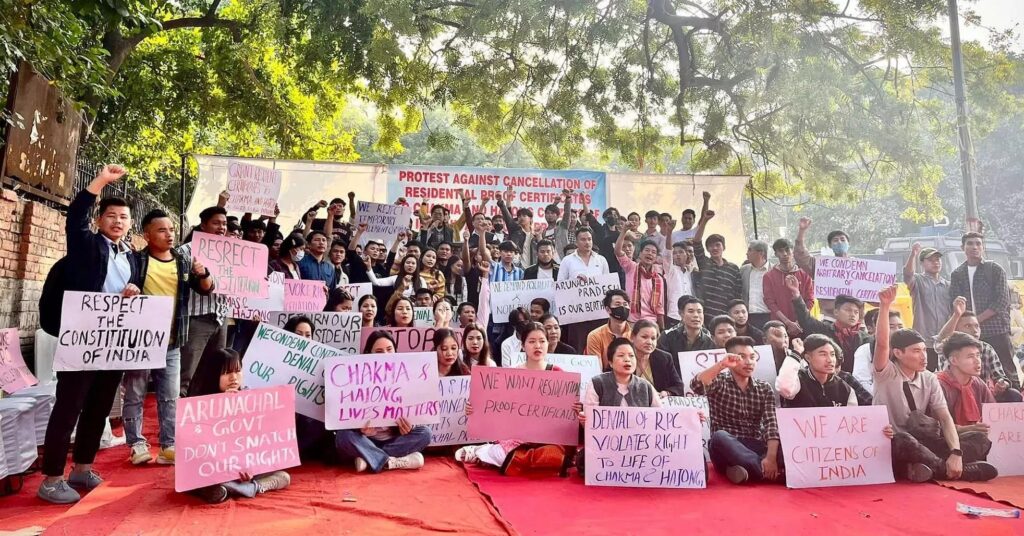Are you curious to know what is non cooperation movement? You have come to the right place as I am going to tell you everything about non cooperation movement in a very simple explanation. Without further discussion let’s begin to know what is non cooperation movement?
The Non-Cooperation Movement, a pivotal chapter in India’s struggle for independence, played a crucial role in shaping the nation’s destiny. In this article, we delve into the details of the Non-Cooperation Movement, exploring its origins, objectives, impact, and relevance across different academic levels.
What Is Non Cooperation Movement?
The Non-Cooperation Movement, a key phase of the Indian independence movement, was launched on 1st August 1920 by Mahatma Gandhi. Its primary aim was to protest against British colonial rule through nonviolent resistance and non-cooperation with British authorities.
Origins Of The Non-Cooperation Movement:
Gandhi’s inspiration for the movement stemmed from the Jallianwala Bagh massacre in 1919 and the Rowlatt Act, which intensified anti-British sentiments across India. The movement gained momentum as a response to these atrocities and the need for a united front against British oppression.
Objectives Of The Non-Cooperation Movement:
- Complete Independence: The overarching goal was to achieve complete self-rule and freedom from British colonial rule.
- Boycott of British Goods: Indians were urged to boycott British-made products to weaken the economic hold of the colonial power.
- Non-Cooperation with Institutions: Indians were encouraged to withdraw support from British-controlled institutions, including educational and legal systems.
Key Phases Of The Non-Cooperation Movement:
- Mass Protests: The movement saw widespread participation in mass protests, demonstrations, and strikes across the country.
- Surrender of Titles: Many Indians renounced their titles and honors bestowed by the British government.
- Boycott of Educational Institutions: Students played a significant role by boycotting schools and colleges affiliated with the British system.
Impact Of The Non-Cooperation Movement:
- Awakening National Consciousness: The movement ignited a sense of national pride and consciousness among Indians.
- Formation of Swaraj: The idea of self-rule gained prominence, laying the foundation for the concept of ‘Swaraj.’
- Change in British Policies: The sustained pressure compelled the British government to reassess its policies in India.
Relevance At Different Academic Levels:
- Class 8: Understanding the Basics: Students at this level can grasp the fundamental concepts and historical context of the Non-Cooperation Movement, setting the stage for further learning.
- Class 10: Detailed Exploration: Class 10 students delve deeper into the movement, analyzing its impact on society, politics, and the economy.
- Class 12: Comprehensive Understanding: At the higher secondary level, students explore the nuanced aspects of the Non-Cooperation Movement, its intricacies, and its place in the larger independence movement.
Non-Cooperation Movement: A Short Note:
For those seeking a quick overview, the Non-Cooperation Movement can be summarized as a nonviolent protest against British rule, emphasizing mass participation, economic boycotts, and non-cooperation with British institutions.
Conclusion:
The Non-Cooperation Movement stands as a testament to the power of collective action and nonviolent resistance. Its impact resonates through India’s history, serving as a pivotal moment in the journey toward independence. Whether at the foundational level or in advanced studies, understanding this movement is essential to comprehend India’s struggle for freedom.
FAQ
What Is The Non-Cooperation Movement In Short?
The non-cooperation movement was a political campaign launched on 4 September 1920, by Mahatma Gandhi to have Indians revoke their cooperation from the British government, with the aim of persuading them to grant self-governance.
What Is Ncm Class 10?
Non-Cooperation Movement (1920) – Indian Freedom Struggle. The Non-cooperation Movement was launched on 5th September 1920 by the Indian National Congress (INC) under the leadership of Mahatma Gandhi. In September 1920, in Congress session in Calcutta, the party introduced the Non-Cooperation programme.
Who Called Of The Non-Cooperation Movement?
The Non-Cooperation Movement was called off by Gandhiji after the incident of Chauri Chaura in Uttar Pradesh. On 5th Feb of 1922, the protest became violent when protesting people set fire a police station, burning 22 policemen alive.
What Was The Non-Cooperation Movement In Ncert?
It was the Rowlatt satyagraha that made Gandhiji a truly national leader. Emboldened by its success, Gandhiji called for a campaign of “non-cooperation” with British rule. Indians who wished colonialism to end were asked to stop attending schools, colleges and law courts, and not pay taxes.
I Have Covered All The Following Queries And Topics In The Above Article
What Is Non Cooperation Movement Upsc
What Is Non Cooperation Movement Pdf
What Is Non Cooperation Movement In India
What Is Non Cooperation Movement Class 8
What Is Non Cooperation Movement Class 12
What Is Non Cooperation Movement Class 10th
Non Cooperation Movement Short Note
What Is Non Cooperation Movement Class 10 In Points
What Is Non Cooperation Movement



